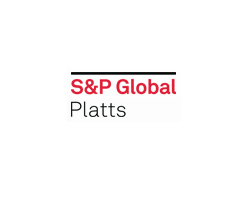Eurocoke: U.S. Coking Coal Growth Capped by Capital, Equity Investor Trends

April 8, 2019 - U.S. coking coal output growth is constrained by limited financing appetite for coal projects, despite higher coal prices in the past two years, according to mining and trading sources.
Banks and investors are shying away from funding coal mines, and they may not have the backing internally to make the distinction between thermal coal for power generation and metallurgical coal to participate in supply growth, participants at the Eurocoke conference in Amsterdam said last week.
Large pensions funds and shifts in bank lending criteria and policies increasingly discriminate against coal, squeezing access to funds, and pushing up interest rates via alternative sources such as secondary and high yield markets.
Corsa Coal funded new greenfield mines in northern Appalachia, which will help offset declining output at its existing mines and grow scarcer low-vol HCC resources in the US.
However, the mining and trading company said it sees limited U.S. coking coal supply growth due to challenges in raising new capital.
Cash is largely funding ongoing production plans at U.S. coking coal producers and paying back debt or exiting the industry in dividends.
The situation in Australia for growth may also be restricted, with coal mine plans rejected on environmental grounds, and potential for new coal export ports uncertain, according to coal producer Jellinbah Group.
Several Australian companies and investors, including Gina Reinhart's Hancock Resources, are seeking to progress coking coal projects in Canada's British Columbia and Alberta.
Trading giant Glencore, a major coal producer with thermal, semi-soft and hard coking coal mines, agreed earlier this year to taper back coal production growth, in response to environmentalist pressure and investor backing coordinated by the Church of England's trustees.
"We believe financing any new coal project through debt syndication will be increasingly difficult in a ESG (Environmental, Social and Governance) conscious world," BMO Capital said in a note last week on coking coal.
Coking coal supplies are structurally tight and demand is growing in markets such as India and Southeast Asia, BMO Capital said. China's coking coal imports may trend lower over the coming year and contribute to balancing supply with demand, it said.
Financial markets appear to be "rationing" capital available to the coal industry, which is primarily affecting thermal coal but also coking coal, Teck Resources CEO Don Lindsay told investors last week.
If capital continues to be limited for coal companies, over time it could constrain supply, which supports higher prices and values for existing operations, he said.
Investors in U.S. coal companies remain focused on income and taking out cash, U.S. market sources said.
Longer-term equity interest is limited after bankruptcies at several groups such as Alpha Natural Resources, Patriot Coal, Walter Natural Resources and Arch Coal forced bondholders to take ownership stakes and acquisitions and restructurings followed.
Some of these new owners had no intention of taking equity and may be short-term investors, looking to exit after a few years.
Distressed debt traders traded into opportunities attracted to valuations against rebounding coking coal prices since 2016, many with shorter-term investment horizons, and now seeing wider investor appetite yet to return.
High benchmark coking coal prices above $200/mt FOB for much of the past three years generated high cash margins for miners with lower to average production costs, and substantial free cash flow.
Even with the high coal prices, U.S. producers with unmanageable capital structures were said to struggle to find common ground with creditors.
Higher industry costs for equipment and ongoing maintenance, as well as difficulties finding trained personnel after the downturn in the coal sector limited services available to the industry may restrict output and elevate longer-term total costs.
Workshops may take longer replacing or re-building mining equipment, constraining output, while mining and other coal sector jobs are becoming less attractive in the current U.S. economy.
Waiting lists at machine shops months in advance have been reported in the past few years.
Arch Coal's expansion at the high-vol A Leer mine is being partly offset by lower future production at Mountain Laurel, as a longwall mining system is transferred over from the high-vol B mine to the new project, saving on new equipment.
The U.S. was long known as a swing supplier in the global met coal market, bringing onto market additional tons when margins exceeded costs to produce over longer-term contract demand.
If global demand rises and the US's response is capped by production levels at existing resources, limited price volatility in coking coal may be the result.
Wood Mackenzie's Jim Truman told Eurocoke delegates he expects prices to range in a tight band of $180-$215/mt FOB, around current spot prices.

